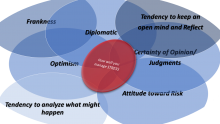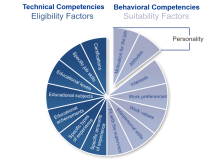Many organizations have failed to see the full promise of talent management systems and the two most common reasons are partial implementations and failing to integrate predictive behavioral information on each employee with their talent management processes and systems.
Talent Management systems have 4 principle functions including recruiting(which supports recruiting, hiring, selection and onboarding typically), performance management, learning management and compensation and benefits management. By integrating behavioral information including motivations, attitudes, natural tendencies, , task and work environment preferences and other pertinent data, you not only "inform" processes and decisions throughout the talent management cycle you enable optimization. That is, you provide the key data (that is not present in these systems) to make the optimal selection decisions, to optimally manage each employee, to select the best development path and provide information to the employee that will optimize their development experience and you can better make compensation decisions based on a knowledge of what really matters to them.



























 One of the most difficult challenges managers face is choosing the right people and understanding how to get them to perform at their best. During the last 12 years of our experience, we have found no other tool except the Harrison Assessment that enables this kind of capability with incredible accuracy and insight.
One of the most difficult challenges managers face is choosing the right people and understanding how to get them to perform at their best. During the last 12 years of our experience, we have found no other tool except the Harrison Assessment that enables this kind of capability with incredible accuracy and insight.

 "The U.S. Department of Labor has estimated the costs to replace an employee to be approximately 1/3 their annual salary; but when you start looking at the impact of hiring the wrong employee and having to replace them, some studies say 2.5 times annual earnings, some 4 times and some even higher." AGILEdge
"The U.S. Department of Labor has estimated the costs to replace an employee to be approximately 1/3 their annual salary; but when you start looking at the impact of hiring the wrong employee and having to replace them, some studies say 2.5 times annual earnings, some 4 times and some even higher." AGILEdge













